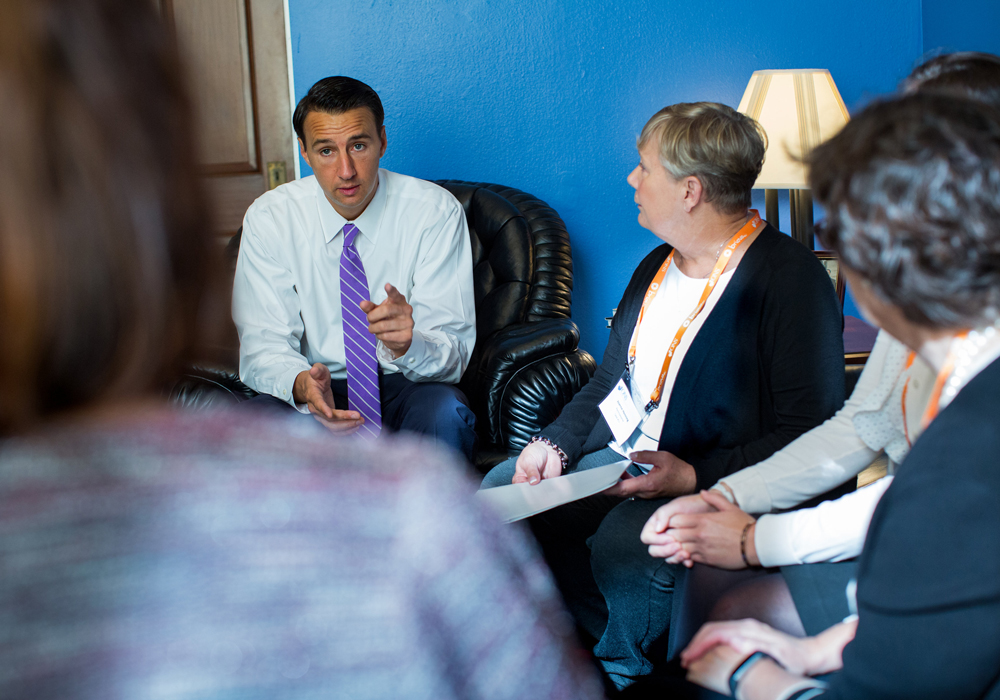Former Speaker of the U.S. House of Representatives Tip O’Neill was fond of saying, “All politics is local.” What he meant was, if an elected official took care of the constituents back home, then whatever happened in Washington, DC, wouldn’t matter as much. Whatever issues most affected voters in the legislative district, then that is where members of Congress should spend their time.
But how did this system evolve? Surely the Founding Fathers did not intend for the new republican form of government to be marginalized with wedge issues that allow for allocations of the federal largess to be provided to targeted populations.
The History of American Advocacy
The U.S. Constitution expressly states in the First Amendment that “Congress shall make no law…prohibiting…to petition the government for a redress of grievances.” In the broadest terms, scholars agree that petition can be defined in modern times, in fact, as lobbying.
“The petition clause is the tacit assumption in constitutional analysis, the primordial right from which other expressive freedoms arise. Why speak, why publish, why assemble against the government at all if such complaints will only be silenced?”
In an ideal world, elected officials would do the right thing, all the time. But the beauty of democracy is that it is based on people, and we are all fallible. But, because of that, corrections to mistakes can be made too.
Political bosses, those who use the levers of electoral structure to manipulate the process, are less in control than they once were. The most notorious was New York State’s Boss William Tweed, who said, “The way to have power is to take it.” He mustered mass voting blocs for personal gain, but also for those specific groups’ benefits in health, education, housing, and social welfare. Not a pretty beginning, but it provided a strong lesson in advocacy and participatory democracy.
Similarly, Former President Martin Van Buren, in his 1837 inaugural address, pointed out the diverse and growing young nation that was demanding different priorities from their new country.
“The thoughtful framers of our Constitution legislated for our country as they found it. Looking upon it with the eyes of statesmen and patriots, they saw all the sources of rapid and wonderful prosperity; but they saw also that various habits, opinions, and institutions peculiar to the various portions of so vast a region were deeply fixed…a real diversity of interests, liable to be exaggerated through sinister designs; they differed in size, in population, in wealth, and in actual and prospective resources and power; they varied in the character of their industry and staple productions, and [in some] existed domestic institutions which, unwisely disturbed, might endanger the harmony of the whole.”
From our earliest days, it was understood that the patchwork of people had a common interest in making America succeed. But, they each wanted what they deemed their fair share of the apportionment.
Application to Health Policy
If we fast forward to this summer and the contentious debate about the Affordable Care Act, many lessons can be drawn from the earliest days of American advocacy. Both sides are adamant about their cause. Both sides believe they are right. Both sides will fight to make every vote count.
Recently, Senator John McCain (R-AZ), diagnosed with brain cancer, returned to the floor of the U.S. Senate. In an unexpected speech, he said he could not vote for the healthcare bill as it stood. More than that, he implored his colleagues to put aside partisan differences and govern for the sake of every American. McCain added that all U.S. senators “are the servants of a great nation,” partisan politics have invaded real leadership, and the time has come to return to regular order and do the people’s work.
Admittedly, the evolution of democracy is not as elegant as we would recall. But the nature of it continues to be elastic and permeable. It can withstand a great deal of pressure and maintain its form. Our jobs as advocates are to work in the medium, casting, toiling, and molding to form a more perfect union.
Confronting elected officials is part of that process. Only six months into the 115th Congress and the new president, it is incumbent on us all to be actively involved in the process. Especially oncology nurses. Cancer is still the major morbidity factor. Nursing is still an underfunded profession. Health care is still costly and inefficient, with more barriers to care than just access.
Martin Luther King, Jr., said it best: “The fierce urgency of now” is upon us. Help ONS make a difference. Join the advocacy effort, and get involved to be a leader in your own town, chapter, and legislative district.






